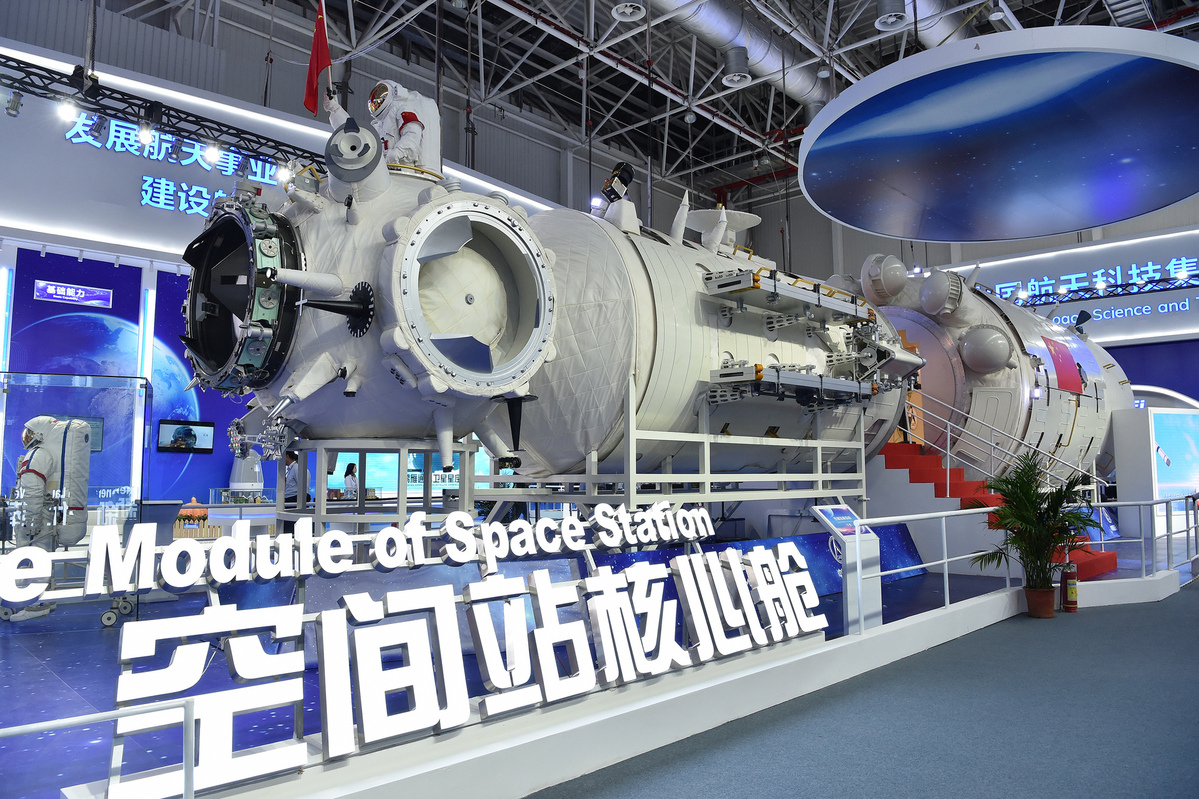ghazi52
PDF THINK TANK: ANALYST

- Joined
- Mar 21, 2007
- Messages
- 102,868
- Reaction score
- 106
- Country
- Location
Pak China framework agreement on manned Space cooperation
China Mobile Space Engineering Office official released that China and Pakistan signed the "China Manned Space Engineering Office and the Pakistan Space and Upper Atmosphere Research Committee on manned space flight" on the 27th. The Cooperation Agreement on Flight Activities (hereinafter referred to as the "Cooperation Agreement") marks a new stage in the cooperation between China and Pakistan in the field of manned space.
On April 27th, Hao Chun, Director of the China Manned Space Engineering Office, and Amer Nadim, Chairman of the Pakistan Space and Upper Atmosphere Research Committee, held talks in Beijing and signed the Cooperation Agreement on behalf of both institutions.
During the talks, Hao Hao briefly reviewed the exchanges between the two institutions on follow-up cooperation since 2017 and introduced the latest developments in China's manned spaceflight project, especially the space station mission preparation. Amer Nadeem pays tribute and appreciation for the great achievements of China's manned space flight. He thanked China for its ability to list the Palestinian side as a partner in manned spaceflight and is willing to take this opportunity to further deepen cooperation and exchanges. The two sides also exchanged views on how to better promote the follow-up cooperation and exchange work.
It is reported that the cooperation agreement signed this time will serve as the top-level framework basis for cooperation between China and Pakistan in the field of manned spaceflight. According to the Cooperation Agreement, the potential cooperation areas of the two sides include space science experiments and technology experiments, astronaut selection training and flight, manned space science application and transformation of results. In the next step, the two sides will also set up a joint committee of China-Pakistan manned space cooperation, with the leadership of the two agencies as co-chairs to study important issues in the follow-up cooperation of decision-making
China Mobile Space Engineering Office official released that China and Pakistan signed the "China Manned Space Engineering Office and the Pakistan Space and Upper Atmosphere Research Committee on manned space flight" on the 27th. The Cooperation Agreement on Flight Activities (hereinafter referred to as the "Cooperation Agreement") marks a new stage in the cooperation between China and Pakistan in the field of manned space.
On April 27th, Hao Chun, Director of the China Manned Space Engineering Office, and Amer Nadim, Chairman of the Pakistan Space and Upper Atmosphere Research Committee, held talks in Beijing and signed the Cooperation Agreement on behalf of both institutions.
During the talks, Hao Hao briefly reviewed the exchanges between the two institutions on follow-up cooperation since 2017 and introduced the latest developments in China's manned spaceflight project, especially the space station mission preparation. Amer Nadeem pays tribute and appreciation for the great achievements of China's manned space flight. He thanked China for its ability to list the Palestinian side as a partner in manned spaceflight and is willing to take this opportunity to further deepen cooperation and exchanges. The two sides also exchanged views on how to better promote the follow-up cooperation and exchange work.
It is reported that the cooperation agreement signed this time will serve as the top-level framework basis for cooperation between China and Pakistan in the field of manned spaceflight. According to the Cooperation Agreement, the potential cooperation areas of the two sides include space science experiments and technology experiments, astronaut selection training and flight, manned space science application and transformation of results. In the next step, the two sides will also set up a joint committee of China-Pakistan manned space cooperation, with the leadership of the two agencies as co-chairs to study important issues in the follow-up cooperation of decision-making













